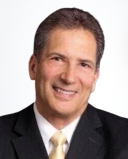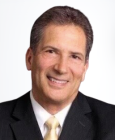Adverse Childhood Experiences
Shame Thought Traps and Adverse Childhood Experiences
Acquired thinking patterns matter.
Posted July 12, 2023 Reviewed by Davia Sills
Key points
- Shame-based memories from the earliest years of life imprint primarily in the non-verbal right brain.
- Once the left brain comes online developmentally, learned verbalized thoughts can add to and worsen shame.
- Disturbing thoughts linked to shame can be unlearned, with a resulting lessening of disturbing symptoms.
This post is part of a series on adverse childhood experiences. Read the other parts here.
Shame from the earliest months and years of life imprint primarily in the non-verbal right brain, with its strong connections to the emotional and survival regions of the brain. Thus, an angry shout or rejecting look from a caregiver is likely to be internalized by the child as a wordless felt sense (such as dread or fear), with accompanying physical sensations (such as muscle tightness or a sick feeling in the gut). This response tends to be readily triggered in adulthood if the initial wound is not resolved.
After the verbal left brain develops around year three, individuals can begin to form negative thoughts that pile more shame on top of the unspoken shame reactions imprinted in the early years.
The Shaming Thought Traps
Fortunately, there are effective strategies to soothe and settle non-verbal memories from the early years. It is also possible to modify the shaming thoughts that heighten the experience of shame. This article identifies common thought traps related to shame and more reasonable alternatives.
1. Labels
Perhaps someone says, “You are incompetent” (stupid, inadequate, or some other harmful label), and that word pulls up painful emotions and bodily sensations from the past. What makes labels like these unreasonable is the form of the verb to be. To say “You are incompetent” means you are always and in every way incompetent. Obviously, no one fits that description. A kinder way of thinking might be, “I’m actually pretty capable in a number of areas, and I’m still learning the ropes in many other areas.”
2. Self-condemnation
Perhaps you’ve acted in a way that hurt you or another person, and you think, “I’m no good, bad to the core, worthless.” These are thoughts that typify shame. In contrast, guilt says, “That decision or that behavior was bad.” Guilt can be helpful, pointing out where we can grow and ways to live more fruitfully. As long as guilt is not exaggerated (e.g., when you take more responsibility than the situation warrants), and as long as it leads to positive change and is then released, then guilt is a useful emotion.
The self-condemnation of shame, on the other hand, serves no useful purpose. Instead of thinking, “I’m worthless,” try thinking, “I’m worthwhile” (worth the while, worth the time to try and to grow), or “I have worth as a person, just like everyone else—even though others might have more market or social worth than I.”
3. Pessimism
Pessimism is thinking, “I’ll never improve,” or “Things will never get better.” These thoughts keep us stuck in depression or anxiety and prevent us from trying. Kinder, more upbeat thoughts are: “Where there is life, there is hope. If I keep trying, I’ll likely learn a better way. I might discover ways to heal and be happier. Since many others, even those who have hit rock bottom, have figured out how to enjoy life and themselves, I will, too.”
The thought traps of shame are simply unkind thinking patterns learned along the way. They lead to harsh judgments of self that sap life’s joy. Just as the shaming thought traps have been learned, so can you learn to replace those patterns with kind ways of thinking that motivate you more effectively.
When a child who is learning to walk stumbles, loving caregivers exclaim, “You are learning to walk. That’s wonderful!” They don’t scold or berate the child. Similarly, you can learn a new habit: the joy of responding to difficult times with caring thoughts for yourself.
References
Schiraldi, G. R. (2021). The Adverse Childhood Experiences Recovery Workbook: Heal the Hidden Wounds from Childhood Affecting Your Adult Mental and Physical Health. Oakland, CA: New Harbinger Publications.


